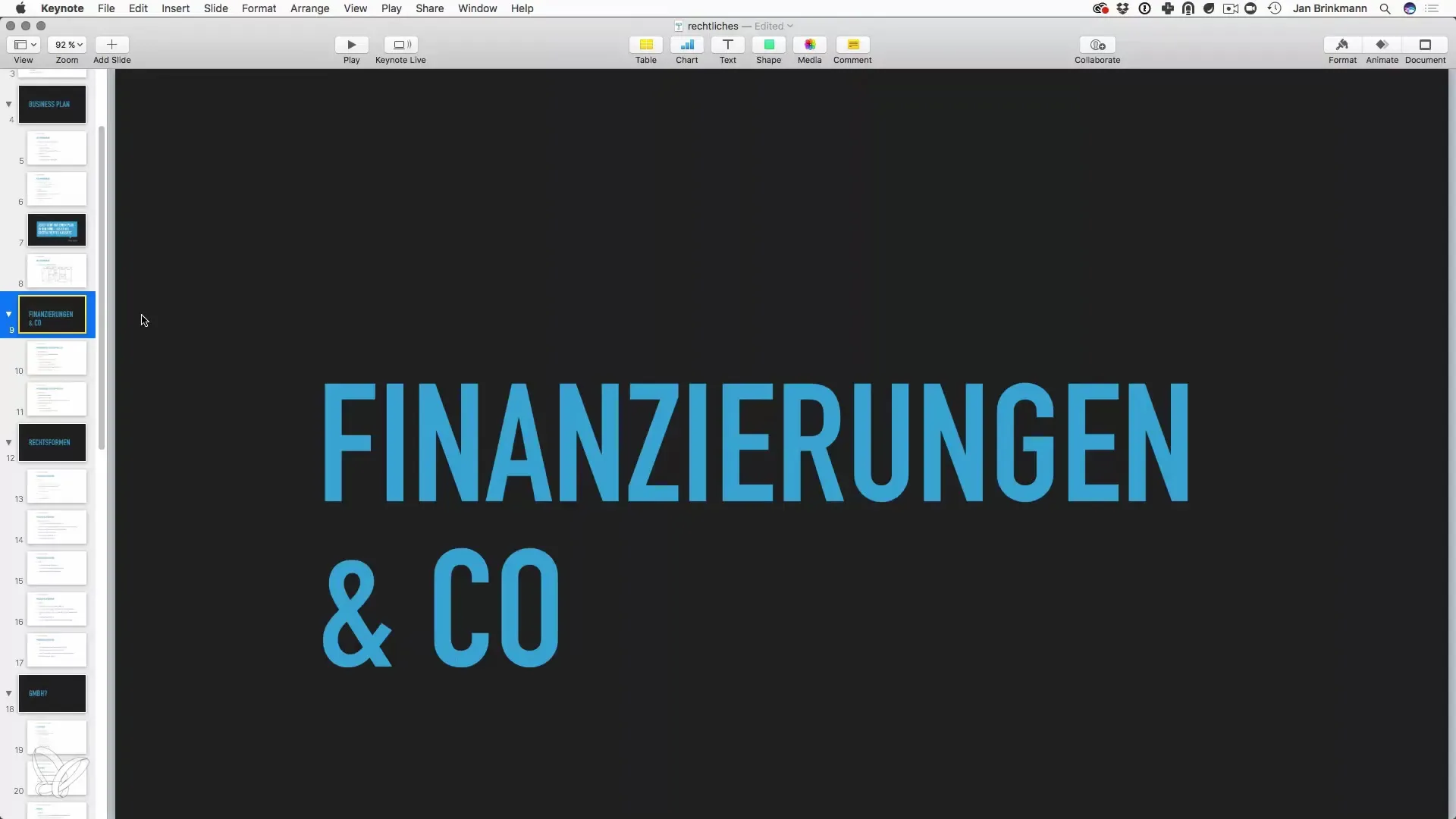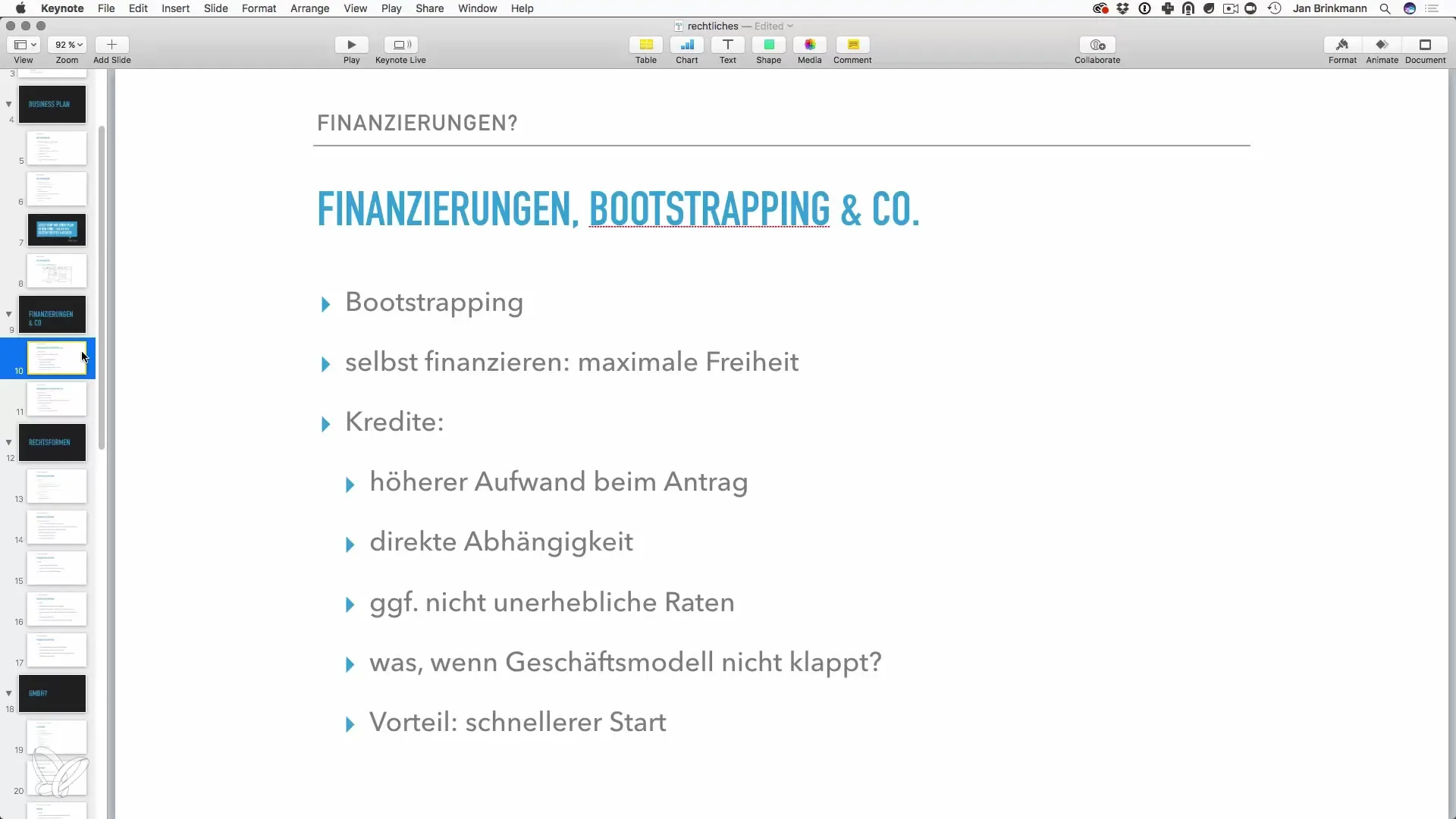The decision to work as a freelancer not only brings creative freedoms and flexibility but also challenges – especially regarding financing. Whether for the growth of your business or for bridging initial dry spells: financing is a crucial element that determines whether you can be successful in the long run.
Main insights
- Equity and bootstrapping take priority.
- Loans should be well thought out and ideally linked to a solid business plan.
- Higher investments often come with higher commitments.
- Your personal financial situation influences your financing options.
- Advice from experts can help find the best options.
Step-by-step approach to financing
Step 1: Build personal savings
Before you start your freelancer business, it's wise to create a financial cushion. This can help minimize initial financial risks and give you more freedom to make creative decisions.

One of the fundamental strategies is bootstrapping. Here, you use your own capital to start your business. Make sure you can cover your living expenses for at least three months so you are not immediately reliant on external financing in the initial phase.
Step 2: Develop market strategies without high investments
Think about how to achieve maximum impact with minimal financial resources. Use social media and online platforms to promote your services. This can be significantly cheaper than traditional marketing measures.

Through targeted marketing strategies, you can increase your earnings and thereby build more capital that you can reinvest.
Step 3: Utilize loans strategically
If you are considering external financing, it is important to choose the right types of loans. Business loans, especially startup loans, can be an excellent way to gain greater financing flexibility.
Go well-prepared into discussions with your bank. Create a clear and detailed business plan that convincingly presents your idea. This will increase the likelihood of obtaining the required loan.
Step 4: Use external financing only in exceptional cases
Taking out loans often means dependency. Ensure that you calculate exactly which repayment amounts you can manage should your business model not be profitable immediately.
Additionally, it will be necessary to regularly monitor your business figures and possibly also report to third parties. Be sure you consider these obligations carefully.
Step 5: Seek support from experts
If you are uncertain about which financing options are best for your business, consider consulting a business advisor. They can help you find the options that suit you best and give you an overview of possible funding opportunities.
It may also be worthwhile to compare different banks to find the best terms.
Summary – Funding Your Freelancer Journey: Essential Insights and Steps
The right financing is crucial for your success as a freelancer. The focus should be on building your own savings, followed by targeted loan requests as your business model stabilizes. Expert advice can help you navigate the many facets of financing and make the best decisions.
Frequently asked questions
How much equity should I aim for as a freelancer?It is advisable to secure living expenses for at least three months in advance.
Why is bootstrapping important?Bootstrapping gives you independence and allows you to develop your business without external obligations.
How do I prepare a business plan?A business plan should clearly and convincingly present your business idea, including financial forecasts and market research.
Which loans are recommended for freelancers?Business loans and specifically startup loans are often the best options.
When should I consider external financing?If you aim for significant growth or are planning projects that require large upfront investments.


